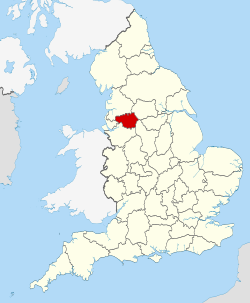 Map of the Greater Manchester Police area within the UK | |
| Type | police and crime panel |
|---|---|
| Purpose | scrutiny and oversight |
| Location | |
Region served | Greater Manchester |
| Membership | 12 |
| Website | GMCA Committee Page |
Formerly called | Greater Manchester Police and Crime Panel |
The Greater Manchester Police, Fire and Crime Panel is the police and crime panel for Greater Manchester. The purpose of the panel is to scrutinise the directly elected Mayor of Greater Manchester, and their appointed Deputy Mayor for Policing, Crime, Criminal Justice and Fire, who are responsible for the Greater Manchester Police and the Greater Manchester Fire and Rescue Service.